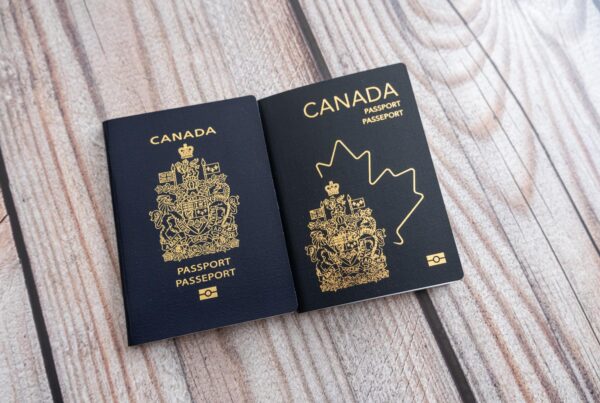Traveling across borders can be a thrilling experience, but it also comes with its own set of challenges. One of the most stressful scenarios you might encounter is facing refusal at a port of entry. Imagine the excitement of reaching your destination, only to be told you cannot enter. What happens next? What are your rights? And when should you get legal help? Let’s dive into everything you need to know about handling a port of entry refusal, and how to navigate the situation with confidence.
What to Do If You Face Refusal at a Canadian Port of Entry
If you’re refused entry at the Canadian border, the first thing to remember is to stay calm. Border officers have the authority to decide who can enter, but that doesn’t mean you’re entirely without options. Ask the officer why you’re being denied entry, as this will help you understand the next steps. It could be something as simple as missing paperwork or a visa issue that can be resolved relatively quickly.
It’s important to know that you have the right to ask questions and seek clarification. If you’re not sure why you were denied, request a written explanation. This documentation will be important if you need to follow up later, especially if you plan to consult a lawyer. Leaving without understanding the reason for the refusal could complicate your future attempts to enter Canada.
Understanding Your Rights During Port of Entry Detention
Being held for questioning or detained at a port of entry can feel intimidating, but remember that you have specific rights. Officers may ask you to wait in a separate area while they conduct further checks or interviews. During this time, you’re entitled to know why you’re being held and how long the process might take.
In certain situations, you may have the right to contact a lawyer. If the situation escalates beyond routine questioning, ask if you can make a phone call. A legal professional can provide advice and help ensure you’re treated fairly during the detention process. Understanding your rights in this scenario can help you remain composed and make informed decisions.
Common Reasons for Port of Entry Refusals and How to Respond
Refusal at the border can happen for a variety of reasons, some of which might surprise you. One common reason is incomplete or inaccurate documentation. If you’re missing a required visa or your paperwork has errors, you could be denied entry. Always double-check your documents before you travel to avoid this problem.
Another reason could be related to previous immigration violations or criminal records. Even minor offenses can impact your ability to enter Canada. If you suspect this might be an issue, consider consulting a legal professional before your trip. We can help you understand potential roadblocks and prepare the right documents to prevent complications.
When to Consult an Immigration Lawyer After a Port of Entry Refusal
If you’ve been denied entry, you might wonder when it’s time to seek legal help. An immigration lawyer can offer valuable guidance, especially if you plan to challenge the refusal or if you have plans to reattempt entry in the future. We can help you review the reasons for the denial and assess whether there were any procedural errors or violations of your rights.
Contacting a lawyer promptly can make a significant difference in how your case is handled. We can help you gather the necessary evidence and file the appropriate documents to appeal the decision. Don’t delay this step, as acting quickly can improve your chances of a favorable outcome.
How a Canadian Immigration Lawyer Can Help Challenge a Refusal Decision
A Canadian immigration lawyer can be your strongest ally when dealing with a border refusal. We understand the legal intricacies of immigration law and can help build a strong case on your behalf. Whether it’s identifying errors in the officer’s decision or presenting new evidence, a lawyer’s expertise can significantly increase your chances of overturning the refusal.
Legal representation is especially crucial if the refusal is based on complex issues like criminal history or suspected fraud. In these cases, navigating the legal process without professional help can be overwhelming. An experienced lawyer can effectively advocate for your rights and ensure you have the best possible chance at a successful appeal.
Steps to Take If You’re Denied Entry at the Canadian Border
If you’re denied entry, it’s important to take immediate action. First, ask for a clear explanation and any relevant documentation related to the refusal. The information you gather will be vital if you decide to appeal the decision or seek legal help. Try to remain calm and respectful when speaking with border officials, as any aggressive behavior can worsen the situation.
After you’ve left the port of entry, take some time to document everything you remember about the interaction. Note the questions asked, your responses, and the reasons given for the refusal. This record will be useful if you choose to consult with a lawyer or if you need to provide a detailed account during an appeal process.
Knowing Your Options After Being Detained at a Port of Entry
Detention at a port of entry can be unsettling, but knowing your options can help ease the stress. You have the right to ask why you’re being detained and what the process involves. Border officers may conduct additional interviews or request further documentation before making a final decision on your entry.
If you feel the detention is unfair or mishandled, you can request to speak with a legal representative. While not all situations require immediate legal intervention, having access to a lawyer can be beneficial, especially if you believe your rights are being violated. It’s always better to err on the side of caution and seek advice if you’re unsure of what steps to take.
Preparing for Future Travel After a Port of Entry Refusal
A refusal at the border can feel like a setback, but it doesn’t have to be the end of your travel plans. To avoid future issues, take time to understand why you were denied and address any problems before you attempt to re-enter Canada. This might involve gathering additional documents, clearing up misunderstandings, or even applying for a special permit if needed.
Planning ahead can make all the difference. Reach out to a legal professional if you’re concerned about facing another refusal. We can help review your case, offer tailored advice, and assist you in preparing a strong application for your next trip. With the right preparation, you can reduce the risk of another refusal and travel with peace of mind.
Get Expert Legal Advice from Joshua Slayen, Canadian Immigration Lawyer, If You Need Help with a Port of Entry Refusal
Facing a port of entry refusal can be overwhelming, especially when you don’t know your rights or what steps to take next. Whether you’ve been detained, denied entry, or unsure about your situation, having the right guidance can make all the difference. Joshua Slayen, a seasoned Canadian immigration lawyer, has the expertise to help you navigate the complexities of border issues, advocate for your rights, and build a solid case for you. Don’t face this stressful situation alone—get the support you need. Contact us today, and let’s work together to resolve your immigration concerns.









